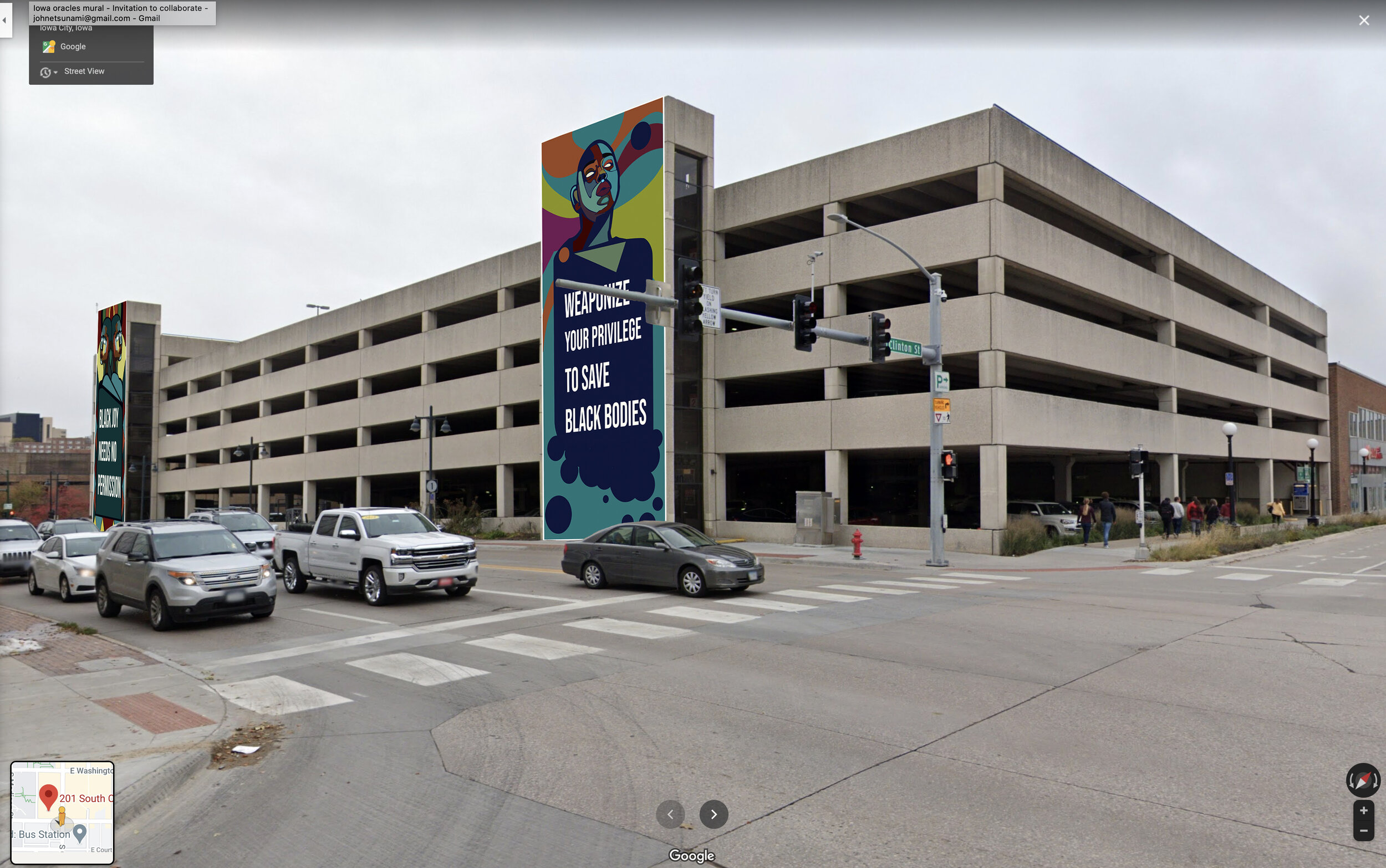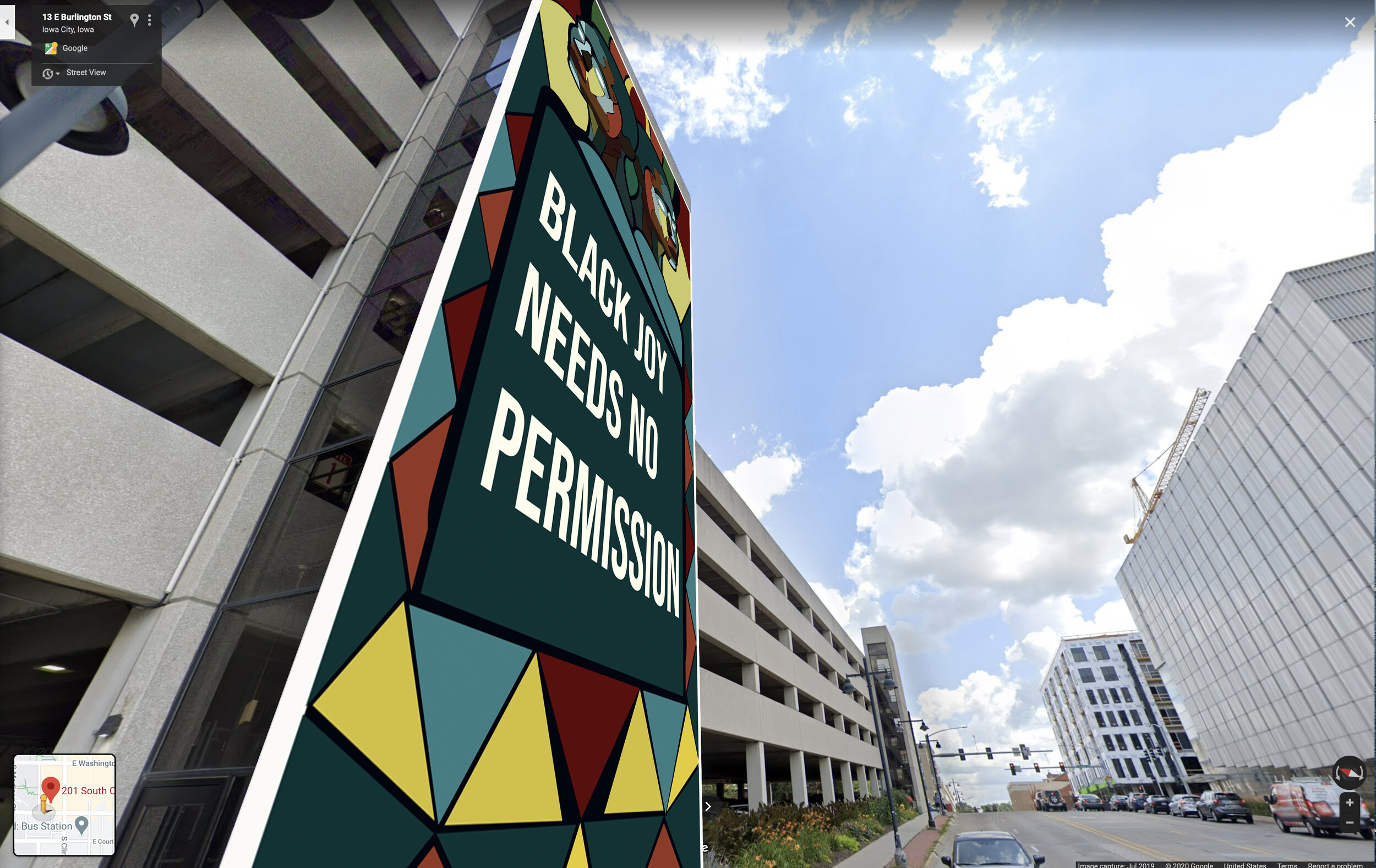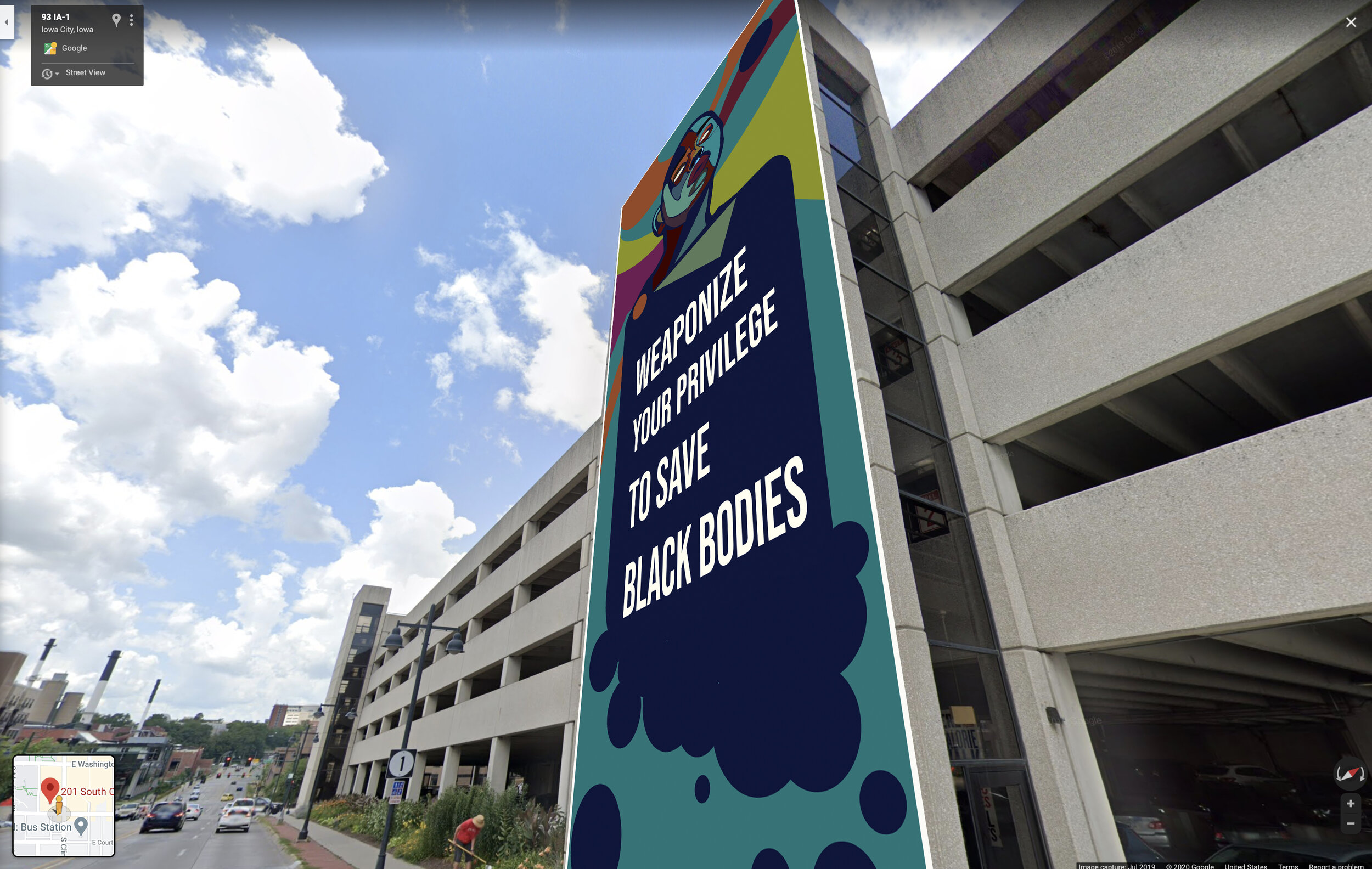Oracles of Iowa City — The Feature
What is the Oracles of Iowa City?
The Oracles of Iowa City is a mural project conceived by Public Space and the Center for Afrofuturist Studies in partnership with well-established artists Antoine Williams and Donté K. Hayes. Both artists are Black men that conceptualized their ultimate vision for this mural to be a visual call out or beacon to the Iowa City community and to the greater region of people that might visit concerning Black people and their lived experience.
The starting thoughts for the theme of this mural, comes from the term, Double Consciousness. The term was created by African American scholar W.E.B. Du Bois to describe the internal conflict experienced by Black people or colonized groups in an oppressive society. Double Consciousness is “this sense of always looking at one’s self through the eyes of others, of measuring one’s soul by the tape of a world that looks on in amused contempt and pity,” DuBois wrote in his The Atlantic debut of the term. “One feels his two-ness, — an American, a Negro; two souls, two thoughts, two unreconciled strivings; two warring ideals in one dark body, whose dogged strength alone keeps it from being torn asunder. The history of the American Negro is the history of this strife, — this longing to attain self-conscious manhood, to merge his double self into a better and truer self. In this merging he wishes neither of the older selves to be lost…He simply wishes to make it possible for a man to be both a Negro and an American without being cursed and spit upon by his fellows, without losing the opportunity of self-development.”
With Double Consciousness as the foundation for this project, the artists, Public Space One, and the Center for Afrofuturist Studies present the Oracles of Iowa City as the start of a larger conversation about diversity, equity, and inclusion in Iowa City, particularly as it concerns the lives and well-being of Black people. The goals for the mural are for those in positions of power and privilege to acknowledge the systemic oppression of Black people and begin structural change. That starts with accountability and an actionable plan to support Black people in Iowa City, instead of aesthetic showcases of performative wokeness and lip service. The intention of this mural, above all else, is to speak to Black people’s humanity—not just their pain. The way the Oracles plan to continue that mission to ensure this project does not become a one-time, “feel good” action is by establishing consistent community chats, providing paid opportunities for BIPOC artists, and fostering public discourse and action toward racial justice in Iowa City and beyond.
Community Response to the Oracles Thus Far…
An Overview of the Survey Response
Overall, the colors and the influence of West African traditions and symbolization in the conceptualization of the mural was met with overwhelming approval from survey respondents. The Oracles of Iowa City created this project and conceptualized these murals to start a conversation about racial justice. A significant amount of survey respondents realized that same mission, too, as over 70% understood public art to serve the purpose of being a call to action for social change while being aesthetically pleasing. That basis is important for contextualizing the mission of the Oracles in sparking and maintaining a public dialogue about racial justice, or the lack thereof, in Iowa City. Social progress always requires uncomfortable and difficult conversations to be had, and that is the intention. In order for all people in a community to be respected and viewed as equal, one must call out injustice and corruption as they see it and be direct in demanding change. Progress isn’t made overnight or by catering to the comfortability of those in power or positions of privilege.
The point of the Oracles project is to have these difficult and often times uncomfortable conversations to speak to Black people’s lived experiences and humanity, creating a space where their voice can be centered instead of their cries often going unheard or ignored in favor of white comfortability and tokenization. Qualitative survey results from self-identified Black respondents said their major concerns would be that this mural would act as a one-and-done performative act for the city to congratulate itself for being inclusive and progressive regarding matters of race; the mural is not strong enough and partakes in whitewashing real lived experiences of Black folks for white comfort; the mural suggests a lack of humanity because of “Black bodies” usage. The Oracles are primarily concerned on the Black respondents concerns, because their lived experience is at the centerfold of this project. Other racial groups were concerned that this caused more controversy and division instead of unity, but the Oracles believe that uncomfortableness is an intentional effect of this mural in order to act as a call to action for real social change.
Social Change Regarding Racial Justice Starts with Education

























